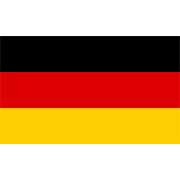Fiscal subject related
Germany has decided that electronic invoicing will become mandatory for all domestic B2B transactions. This means that companies will no longer be able to rely on traditional paper or simple PDF invoices.
Instead, invoices must be issued in structured, machine-readable formats such as XRechnung (XML) or ZUGFeRD 2.1+ (PDF with embedded XML). These formats follow the EU standard EN 16931 and are designed to allow automated processing.
The rollout started on 1 January 2025, when every business must at least be able to receive structured e-invoices. From 2027, companies with annual turnover above €800,000 must also issue them. By 2028, the requirement will extend to all businesses, regardless of size.
The system is decentralized. Invoices do not go through a government portal but are exchanged directly between businesses, for example by email, Peppol, EDI, or e-invoicing platforms, as long as the format is compliant. The tax authorities do not validate or store these invoices in real time, but they can request them later during an audit.
Some transactions are outside the scope of the mandate. These include B2C sales, cross-border invoices, small invoices under €250, passenger tickets, and VAT-exempt transactions. Foreign companies that are only VAT-registered in Germany but do not have a fixed establishment are also excluded.
All e-invoices must contain the usual invoice details such as buyer, seller, VAT numbers, and transaction information. They must also be archived in their original electronic form for ten years to guarantee authenticity and compliance.
In short, Germany’s approach prioritises automation, flexibility, and interoperability. Businesses should prepare now by ensuring their accounting systems can handle XRechnung or ZUGFeRD, testing exchange channels with trading partners, and putting in place long-term archiving procedures
Other news from Germany
Germany allows e-invoices in all EU languages during 2025–2028 rollout.
 Germany
Author: Ivana Picajkić
Germany
Author: Ivana Picajkić
Germany will mandate e-invoicing for all B2B transactions between 2025 and 2028, while allowing invoices to be issued in any of the EU’s 24 official languages. This multilingual approach reduces translation burdens, supports cross-border trade, and ensures compliance as long as invoices contain required VAT details, though businesses must provide German translations if requested during audits Germ... Read more



The German Finance Ministry updates its rules on invoice language requirements.
 Germany
Author: Ivana Picajkić
Germany
Author: Ivana Picajkić
On September 17, 2025, the German Finance Ministry (BMF) updated the VAT Application Decree (UStAE) to allow mandatory invoice details to be presented not only in German but also in any official EU language. The update introduces Annex 8 with a multilingual table of approved terms and applies immediately to all open cases, replacing the 2013 guidance. On September 17, 2025, the German Federal Mini... Read more



German VAT Reform – Changes starting January 2026
 Germany
Author: Ivana Picajkić
Germany
Author: Ivana Picajkić
Germany’s VAT Reform, effective January 1, 2026, makes the 7% VAT rate on restaurant food permanent, keeps drinks at 19%, and raises the nonprofit commercial exemption threshold to €50,000. The changes provide long-term stability for the hospitality sector and give charities more room for income generation, but businesses must update systems, train staff, and carefully track classifications to sta... Read more



Germany: Procedure in Case of POS or Cash Register Failure
 Germany
Author: Ivana Picajkić
Germany
Author: Ivana Picajkić
In Germany, if a POS or cash register fails, businesses must follow strict procedures set out in §146 AO, §146a AO, the KassenSichV, and AEAO. The preferred solution is to switch to another TSE-compliant system, but if none is available, continuous handwritten records must be kept, and the outage fully documented with supporting evidence. Read more
Subscribe to get access to the latest news, documents, webinars and educations.
Already subscriber? Login


Germany Published New E-Invoicing Guideline Linking VAT Law to EU Standard
 Germany
Author: Ivana Picajkić
Germany
Author: Ivana Picajkić
Germany has released a new e-invoicing guideline that maps the legal requirements of the VAT Act (UStG) to the EU standard EN 16931, ensuring structured compliance and interoperability. Developed by XStandards Einkauf, FeRD, and AWV, the guideline provides businesses and software providers with a practical tool to guarantee that e-invoices meet all mandatory VAT information requirements. A new gui... Read more



Germany: Deutsche Fiskal Released a New Update of the FCC
 Germany
Author: Ivana Picajkić
Germany
Author: Ivana Picajkić
The latest update of the Fiskal Cloud Connector (FCC version 4.2.2) is now available for download. More information is given as follows. Read more
Subscribe to get access to the latest news, documents, webinars and educations.
Already subscriber? Login

